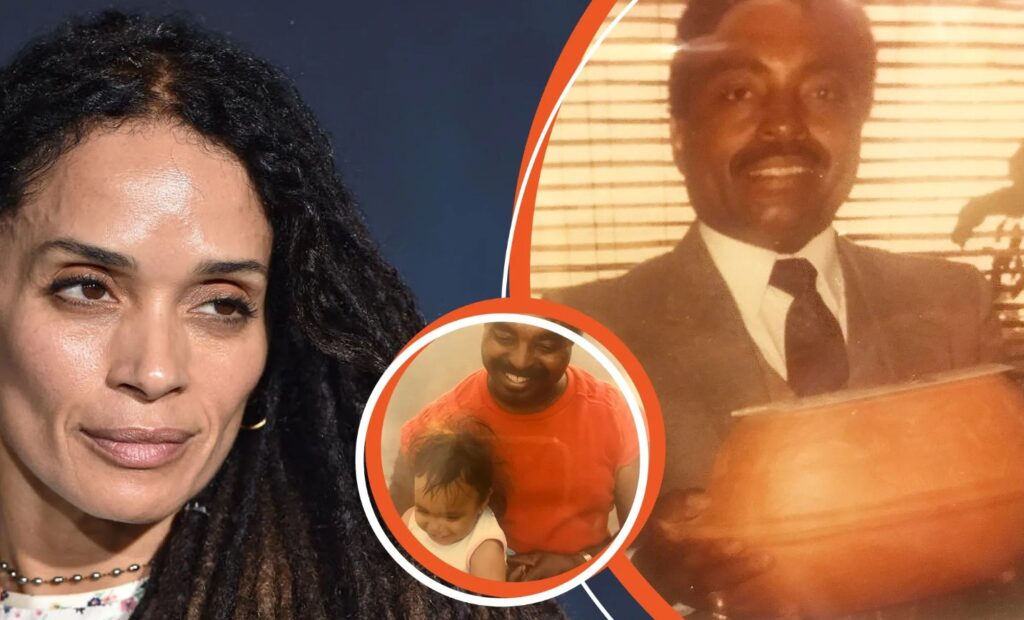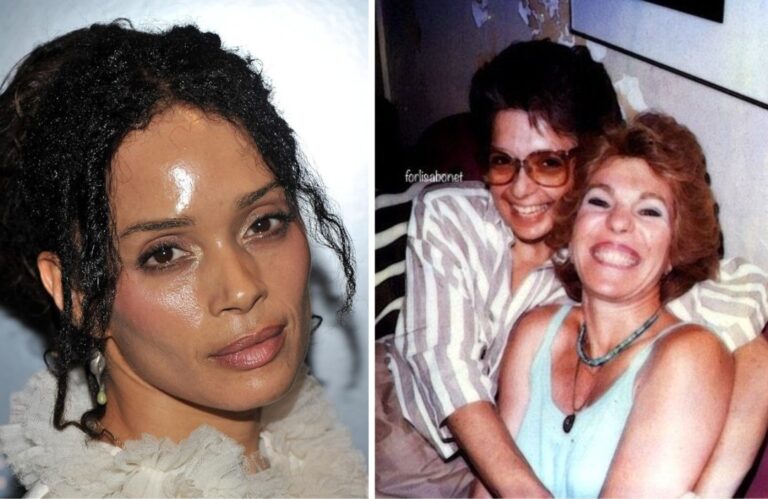Arlene Litman is often mentioned only in passing, usually as Lisa Bonet’s mother, but that surface-level framing barely scratches the truth of her story. She wasn’t just the parent of a Hollywood figure; she was a woman with her own identity, challenges, and cultural background that shaped one of the most enigmatic and respected actresses in American entertainment. If you’re searching for something deeper than the scattered fragments floating around the internet—basically the things you’d find on random blogs masquerading as “Arlene Litman Wikipedia” summaries—this breakdown gets straight to the point and clears up the usual confusion.
Unlike some celebrity-adjacent figures who build careers off proximity, Arlene stayed firmly outside the spotlight. She raised Lisa Bonet long before fame was in the picture, and her life offers real context for the artistic individuality and cultural awareness her daughter became known for. That’s the story worth exploring—not just a footnote attached to a famous name.
Quick Bio Table: Arlene Litman
| Field | Details |
|---|---|
| Full Name | Arlene Joyce Litman |
| Known For | Mother of actress Lisa Bonet |
| Birth Date | February 11, 1946 |
| Birthplace | Pennsylvania, USA |
| Ethnicity | Jewish American (Eastern European roots) |
| Religion | Judaism |
| Profession | Schoolteacher |
| Parents | Eli Litman (father), Sylvia Ellen Goldvary (mother) |
| Spouse / Partner | Allen Bonet (African American opera singer) |
| Children | Lisa Bonet |
| Notable Connection | Part of the extended Bonet–Kravitz family line |
| Death | March 12, 1998 (Los Angeles, California) |
| Legacy | Cultural + personal influence on Lisa Bonet’s identity and upbringing |
Early Life and Ethnic Background
People overcomplicate this section because they repeat secondhand misinformation. Here are the facts: Arlene Litman was a Jewish American woman of Eastern European heritage, born in Pennsylvania. If you’ve been trying to sort out “Arlene Litman ethnicity,” that’s the accurate baseline. There’s no convoluted ancestry debate here—she came from a Jewish family, and her identity played a clear role in shaping her worldview and household.
Her upbringing wasn’t glamorous. She grew up in a practical, working-class environment, surrounded by relatives who valued discipline, education, and cultural tradition. When you look at Lisa Bonet’s composed, almost introspective public persona, the influence is obvious. Arlene carried the mentality of someone who had to be grounded to function, and she passed that stability down.
Arlene eventually built a career as a schoolteacher—something that gets glossed over but actually matters. Teaching isn’t a fallback job; it requires patience, consistency, and an ability to communicate structure to young people. Those traits show up clearly in the way she raised her daughter: minimal chaos, high expectations, and a cultural foundation that encouraged curiosity instead of conformity.
Relationship with Allen Bonet and Family Dynamics

The phrase “Allen Bonet Arlene Litman” typically pops up online when people try to untangle the family tree. Allen Bonet—an African American opera singer from Texas—was Lisa Bonet’s father. Arlene and Allen’s relationship wasn’t a long-running public saga, and anyone trying to dramatize it is stretching the truth for clicks. They didn’t have a storybook partnership, but they shared one essential connection: the birth of Lisa on November 16, 1967, in San Francisco.
Their relationship broke apart when Lisa was still young. That meant Arlene handled most of the heavy lifting when it came to parenting. Being a single mother in that era wasn’t exactly socially applauded, and raising a biracial daughter came with extra challenges in a country that still had a narrow definition of identity. Arlene didn’t play the victim about it—she pushed forward, providing structure even when life wasn’t ideal.
Despite the split, Allen Bonet didn’t vanish from the picture. He and Lisa maintained a relationship, and his artistic background clearly contributed to her creative instincts. But it was Arlene who handled the day-to-day reality, the discipline, the emotional groundwork. Without her influence, the “Lisa Bonet” the world knows would have been a very different person.
Puma Badu: A Rising Star with Legendary Roots
Motherhood and Influence on Lisa Bonet’s Identity
Calling Arlene Litman simply “Lisa Bonet’s mother” undersells what she actually contributed. Look at Lisa’s entire public presence—her calm intensity, her cultural depth, her refusal to conform to Hollywood’s expectations. That didn’t come from nowhere.

Arlene raised Lisa with a strong sense of identity, but not the rigid kind that boxes people in. Because Lisa was biracial, Arlene had to manage a balancing act that a lot of parents still fumble today. She didn’t force one identity to overshadow the other. She allowed space for Lisa to understand her Jewish roots and her African American roots without forcing either side to dominate. That level of awareness and openness wasn’t common in the late 60s and 70s, and it took intentionality to pull off.
Then there’s the artistic influence. Arlene wasn’t a musician like Allen, but she encouraged self-expression. She made room for creativity and independence—qualities that later defined Lisa’s career choices. When Lisa took on roles like Denise Huxtable or later stepped back from Hollywood entirely because she didn’t want to compromise her values, that mindset didn’t come out of thin air. It came from being raised to think for herself.
The Reality Behind the Lack of Public Information
A lot of people search for an “Arlene Litman Wikipedia” entry and end up confused when they can’t find one. The reason is simple: Arlene wasn’t a celebrity, and she didn’t chase visibility. She didn’t market her identity, didn’t interact with the media, and didn’t attach herself to her daughter’s fame for free publicity. She lived her life privately, and her personal information stayed exactly where she kept it—out of public circulation.
This frustrates people who expect every person connected to a celebrity to have a fully documented biography online. But the lack of noise around her life is actually proof of who she was: discreet, grounded, and uninterested in the fame economy. She wasn’t hiding anything—she simply didn’t consider public exposure valuable.
If you’re looking for dramatic scandal or sensational stories, you’re not going to find them because they don’t exist. Arlene’s life was straightforward: she worked, she raised her daughter, she maintained her cultural identity, and she lived outside the Hollywood machine.
Erin Perrine Age, Biography, Career & Personal Life
Legacy and Cultural Impact
Even though Arlene Litman wasn’t a public figure, her influence continues through Lisa Bonet and the extended Bonet family. That includes Zoe Kravitz, who inherited an artistic identity shaped by two generations of cultural depth—Lisa through Arlene, and then Zoe through Lisa.
Arlene’s legacy isn’t flashy. It’s foundational. She provided:
- stability, which grounded Lisa despite her early entry into Hollywood
- cultural identity, giving Lisa a clear understanding of her Jewish heritage
- independence, which kept Lisa from being swallowed by fame
- discipline, ensuring Lisa had a strong internal compass long before she had a career
These aren’t small contributions; they’re the backbone of someone’s entire life.
Arlene died in 1998, but the impact of her values is still evident. When you watch Lisa Bonet’s interviews, see her lifestyle choices, or observe how she prioritizes privacy and authenticity, you’re seeing Arlene’s influence—quiet but permanent.
Conclusion
Arlene Litman wasn’t just an appendix to someone else’s fame. She was a Jewish American educator who navigated the complexities of raising a biracial daughter in a time when society wasn’t exactly progressive about identity. She provided the structure and grounding that allowed Lisa Bonet to become one of the most distinctive figures in Hollywood—someone who still defies expectations and prioritizes integrity over publicity.
If the only thing you knew about Arlene Litman was her connection to a celebrity, now you have the full picture: her ethnicity, her role in the Bonet family, her influence, and the truth behind why she remains so private. There’s no need for speculation, filler, or dramatized “biographical” rewrites. The reality stands on its own—and it’s far more meaningful than the vague summaries scattered across the internet.
FAQs About Arlene Litman
Who was Arlene Litman?
She was a Jewish American schoolteacher best known as Lisa Bonet’s mother. She lived a private life and wasn’t involved in the entertainment industry.
What was Arlene Litman’s ethnicity?
She was Jewish American with Eastern European ancestry—a straightforward answer to the commonly searched “Arlene Litman ethnicity.”
Was Arlene Litman married to Allen Bonet?
Yes. Arlene Litman and Allen Bonet (an African American opera singer) were partners and had one daughter together, Lisa Bonet.
Is there an official Arlene Litman Wikipedia page?
No. There is no standalone Wikipedia page for Arlene Litman because she wasn’t a public figure. Most online info comes from scattered biographical references related to Lisa Bonet.
What did Arlene Litman do for a living?
She worked as a schoolteacher, a stable profession that heavily influenced her daughter’s grounded upbringing.
When did Arlene Litman die?
She passed away on March 12, 1998, in Los Angeles.
How did Arlene Litman influence Lisa Bonet?
Through cultural grounding, discipline, and independence. Lisa’s calm, introspective personality and strong sense of identity didn’t come out of nowhere—Arlene set that foundation.
Did Arlene Litman have any other children besides Lisa Bonet?
No. Lisa Bonet was her only child.
